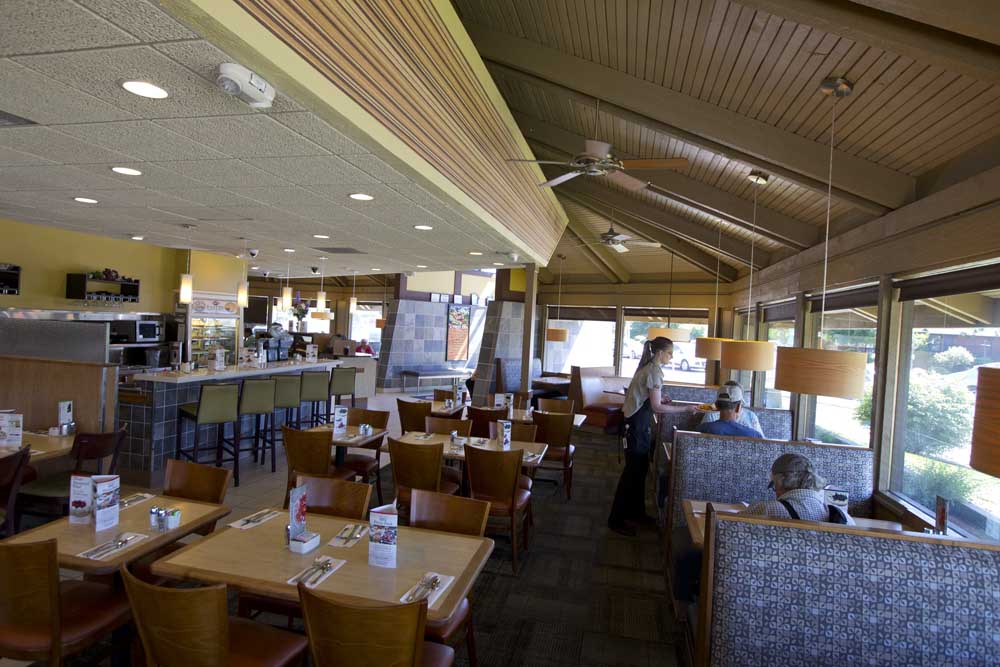Bend’s tree code upheld after challenge by affordable housing developer
Published 4:36 pm Tuesday, May 27, 2025

- A housing development is planed for this wooded parcel of land in southwest Bend. (Dean Guernsey/The Bulletin)
Bend’s trees got a win on Friday.
The city’s code meant to preserve them from development was upheld by a hearings officer after a challenge from an affordable housing developer who argued it violates state law by discouraging construction of housing the city badly needs.
What that means for the future of 30 affordable homes in southwest Bend — and hundreds across the city — is unclear.
Thistle & Nest, the nonprofit affordable housing provider challenging the code, could either redo its plans or appeal the decision to the Oregon Land Use Board of Appeals, a statewide body tasked with reviewing local planning decisions.
The case has spurred broad public interest and a heated debate over whether the city’s love for trees is compatible with a dire need for affordable housing.
Larry Kine, a co-founder of the nonprofit, said Tuesday he had not yet decided on next steps for Murphy Crossing, a southwest Bend development just south of Murphy Road slated to include 104 units of lower-income housing. A planning application to build the first 30 homes of the development was pushed to a hearings officer after the nonprofit failed to meet several city standards and refused to submit a tree preservation plan for the wooded 2-acre parcel.
Thistle & Nest has received $15 million in state funding for the project. The funding acts as a zero-interest loan, reducing project costs and allowing the nonprofit to pass the difference on to buyers. A townhome that might normally be sold for $425,000 on the market could be sold to a low-income buyer for $250,000 to $300,000. Bend’s median home price is more than $800,000.
The city’s tree preservation code, which was passed in August, requires private developers to preserve a certain number of trees on their properties or pay a fee to cut them down.
Kine called the May 23 ruling “kind of a non-decision.” He said felt the ruling didn’t address arguments that the city’s code violates a state law preventing cities from setting development standards “discouraging needed housing through unreasonable cost or delay.”
The 43-page decision issued by hearings officer James Dole does not discuss whether the tree code places an unreasonable cost on developers, but found the tree code to be “sufficiently clear and objective” under Oregon state law.
“The City is happy with the Hearings Officer’s decision, which upheld the tree preservation standards as clear and objective and in compliance with Oregon law,” Jacob Larsen, a spokesperson with the city, said in an email. “The Council remains committed to evaluating the impacts of the tree code, as planned, later this year.”
Under the code, developers of sites larger than 1 acre have four options: save 20% of large trees more than 20 inches in diameter, 25% of smaller trees 6 inches in diameter or larger, replant trees or pay into the city’s tree growing fund in lieu of preservation. Or developers can save 5% of smaller trees and mitigate the rest through payment.
Thistle & Nest has argued the cost of the tree code — from time spent crafting a detailed preservation plan to reducing buildable lands to paying fees to cut down trees — is too much for the affordable housing developer to stomach.
Born from fears that too many of Bend’s mature trees were being cut down to make way for homes, the code was passed by the Bend City Council in June after a lengthy public process that included officials, developers and environmentalists.
It was almost immediately challenged by a group of developers and housing advocates who argued it would increase housing costs in Bend. That appeal was dropped after discussions with the city.
The decision comes as Thistle & Nest moves forward with appeals on a pair of 19-unit affordable housing developments in east Bend, where the nonprofit is challenging a host of city standards including the tree code. Hearings officer Dole, who ruled on the Murphy Crossing appeal, is also assigned to those applications.







